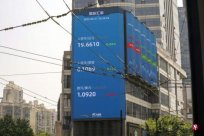Shenzhen is about to introduce new land policies to optimize land use approval procedures, stipulating that enterprises can pay land prices in installments in key industrial projects, regardless of interest.Interviewed scholars believe that the new policy will enable the price of land to meet the laws of the market and help solve the problem of high -cost land consumption faced by enterprises in Shenzhen.
In order to further regulate the supply of land, the Shenzhen Municipal Planning and Natural Resources Bureau launched the drafting work of the Shenzhen Special Economic Zone State -owned Land Supply Management Regulations (hereinafter referred to as the regulations) since the beginning of this year.After the draft regulations were amended by the Municipal Judicial Bureau, they carried out the second round of public opinions to all sectors of society in mid -June.
Theregulations are modified on the basis of the existing land use right transfer regulations.The new regulations will comprehensively stipulate from the aspects of state -owned land supply, utilization, supervision and management, and legal responsibility.
In order to optimize the business environment of the land market, the regulations propose to establish a joint approval mechanism in land use approval procedures to set the land market price system with the core price as the core, focusing on the development of the area of the area, and improve the efficiency of land supply approval.
In terms of reducing the cost of corporate land, the regulations clarify that the land use of key industrial projects and headquarters projects stipulated by the Shenzhen Municipal Government will be able to pay land prices in installments without interest.The first phase of payment shall not be lower than 50%of the land price, and the remaining price shall be paid within one year.
Management regulations also pointed out that industrial land can be "long -term leasing", "lease first and then concession", and "elastic annual transfer".At the same time, innovative industrial housing that is only rented and not sold can also be supplied by allocating allocation, agreement transfer, etc., to guide enterprises to expand industrial space by increasing the plot ratio.
According to the data released by the Shenzhen Industry and Information Technology Bureau, the total output value of Shenzhen above designated size last year exceeded 4.5 trillion yuan (RMB, about S $ 840 billion), and stabilized the largest city in the country.However, with the gradual decrease in land space for Shenzhen, the continuous expansion of industrial land is unsustainable, which has a serious challenge to the future prospects of the manufacturing industry.
Guo Wanda, executive vice president of Shenzhen Comprehensive Development Research Institute, pointed out in an interview with Lianhe Morning Post that Shenzhen's problem is that the land area is small and the development intensity is high, resulting in the scarcity of land in the industry.He judged that the regulations aim to improve the development of urban land and use efficiency, and try to provide space for more emerging industries and key enterprises to solve the high cost problem they are currently facing.
Guo Wanda said that a series of measures taken by the government in reducing land costs will form land prices that comply with market laws and can reflect the support of key industries, and promote the development and transformation of Shenzhen's key industries.
In fact, Shenzhen has implemented many land policy reforms since 2012.Guo Wanda said: "The government hopes that the amendment of the regulations will give the land management higher -level legal effect, and at the same time fix mature experience and practice in the form of regulations."
As for the impact of the regulations on the real estate market in Shenzhen, Guo Wanda believes that it is mainly reflected in the land for resettlement housing and co -owned property housing.He said that this means that the government will be able to build more affordable housing and common property housing in Shenzhen, and play a better regulation and control role in the real estate market.



